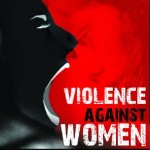-
Advocacy Theme
-
Tags
- Abortion
- Adoption
- Caregiving
- CEDAW
- Disability
- Domestic Violence
- Domestic Workers
- Harassment
- Healthcare
- Housing
- International/Regional Work
- Maintenance
- Media
- Migrant Spouses
- Migrant Workers
- Muslim Law
- National budget
- Parental Leave
- Parenthood
- Polygamy
- Population
- Race and religion
- Sexual Violence
- Sexuality Education
- Single Parents
- Social Support
- Sterilisation
- Women's Charter
Press release and report from the IPS-SAFV-AWARE’s discussion on violence against women
May 24th, 2013 | Family and Divorce, Gender-based Violence, News
Addressing Violence Against Women: in commemoration of International Women’s Day, 8 March 2012 (press release)
Today is International Women’s Day – a day for recognising women’s right to freedom from violence, and to gender equality.
Singapore ratified the Convention on the Elimination of All Forms of Discrimination Against Women in 1995. Inherent in that ratification is a State obligation to promote, protect and fulfil women’s rights in our society. Singapore has done many things right for women – especially giving girls and women equal access to education, which has, in turn, given them better access to livelihoods.
One area – domestic violence – where Singapore has put in place reasonable systems and policies is, however, becoming an area of concern that is worth re-visiting for improvements. The Association of Women for Action and Research (AWARE) and the Society Against Family Violence (SAFV) would thus like to raise awareness about violence against women. We still have too many women and girls who are beaten, molested and raped. Official statistics from the Singapore Police Force show an increase in cases of spousal violence and rape.
Yet these figures only tell one part of the story. Data from the International Violence Against Women Survey (SAFV-NUS, 2010) reveal, significantly, that almost 72 per cent of abused women would not make a report and among them, almost 59 per cent have experienced repeated victimization.
Violence too today is no longer just physical abuse. There is now greater recognition of the psychological and emotional trauma that destroys self-esteem and limits the life-choices of victims.
So today, we ask that more comprehensive steps be taken to eliminate violence against women. In this context, AWARE and SAFV held a closed-door discussion co-organised with the Institute of Policy Studies, resulting in key recommendations as captured by the two organizations for putting the brakes on violence.
On International Women’s Day we owe it to women around the world to take this challenge seriously — to end violence against women, and strike a blow for equality, development and peace.
Noeleen Heyzer, Executive Secretary,
Economic and Social Commission for Asia and the Pacific (ESCAP) who made this remark on 8 March 2007 when she was Executive Director of the then UNIFEM
————————————————————————————————————————————–
Report on Closed-Door Discussion on CEDAW Report 2011 on Addressing Violence Against Women
(sent to the media on 5 March 2012)
The Institute of Policy Studies organised a Closed-Door Discussion on CEDAW Report 2011 “Addressing Violence Against Women” on Monday, 5 March 2012. This was initiated by AWARE (Association of Women for Action and Research) and SAFV (Society Against Family Violence).
Fifty-one people from various backgrounds – academia, Government and non-Governmental representatives – participated in the fast-paced 2.5-hour discussion.
The discussions were grounded in the Concluding Comments made by the UN CEDAW Committee on the persistence of violence against women in Singapore. AWARE and SAFV are very heartened by the openness of Government representatives at the meeting and look forward to further collaboration.
The presenters from AWARE and SAFV made the following points:
- Violence today has expanded to new victims (elderly, youths, foreign workers, foreign wives, homosexuals) and new forms (virtual crimes, sexual grooming), which need new measures to tackle.
- As conceptual understanding of violence shifts, structural reforms will be shaped accordingly.
- Data on violence are still not easily available and inconsistently documented at various agencies, depending on which ‘door’ the victim enters to lodge her case.
- Gender-sensitive approaches are still missing in what seems to be a patriarchal environment though it is acknowledged that some agencies are more sensitised
- Collaboration among agencies is still not maintained through systemic processes.
- The Personal Protection Order and Domestic Exclusion Orders do not always offer protection to victims of violence.
- Domestic violence is still seen as a private matter, severely inhibiting the reporting of cases by victims.
The presenters also shared the findings of the Sterne Report from the UK, which looks at definitions of violence, focusing on the element of coercion in all forms of violence.
The presenters discussed three possible areas for improvement and collaboration between Government and non-government agencies. The discussions that followed are summarised as recommendations by AWARE and SAFV:-
- The Government and non-government stakeholders form a Working Group to look at new definitions of violence that include ‘coercion’, identify new trends on domestic violence and sexual violence; identify vulnerable communities beyond the current family model, to enhance their protection.
- A comprehensive review of policies and procedures should be undertaken by Government and non-government stakeholders to identify gaps, prioritise issues and consider a new focus on coercion in approaches to violence against women, while keeping in mind the need for adequate resources and specialist social workers.
- The Government and the community should work together to enable better coordination between various social service providers and social workers/counsellors, with the possibility of setting up a pool of multi-lingual trained volunteers to support social work agencies, the police or the hospitals. The aim would be a ‘no wrong door’ policy to enable victims to be met by well-trained, sensitised staff at any ‘door’ used.
- Comprehensive and consistent data – disaggregated by sex, age, ethnicity, relationship to perpetrator- should be collected at all ‘doors’ or entry points.
- The Government and the community jointly increase efforts in public education to change notions of domestic violence as a private matter in our society.




